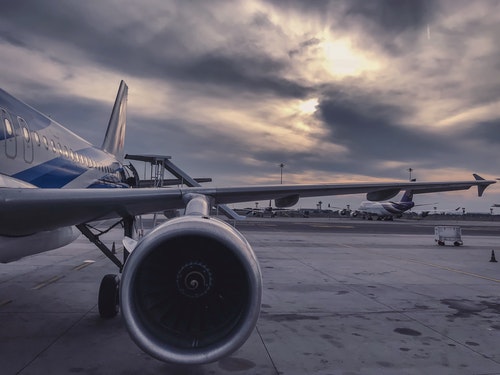When considering private jets applications, an individual may presume that business travel is a significant reason business executives would charter an aircraft. This is right; business travel is among the top reasons for charter. Now, what types of organizations are leading the charge in private aviation?
The business and finance industries are among the top businesses that may come to mind if you ask that question, and you may not be far off. Private business charter companies have helped customers from a vast array of sizes, industries, and specialized niches get the best solution for every moment as a private jet charter leader. We are drawing from that expertise to analyze what sorts of organizations use private jets for their traveling programs.
What Types Of Government And Business Organizations Fly Private?
Although many people, coworkers, relatives, and friends fly independently, a considerable business section is represented by group customers like businesses, governments, and other organizations. Private aviation is an integral aspect of the companies’ success thanks to its privacy, efficiency, security, convenience, and much more. These are the kinds of businesses and organizations that are most likely to fly privately.
Small Businesses
The National Business Aviation Association, a business that encourages private jets for business purposes, searched for the analytics of what sorts of companies employed private jets for their traveling schedules. The report revealed that smaller businesses, defined by less than 500 workers, accounted for 70 percent of private charters in America. As firms grew in size, they tended to reduce the use of private jets. Bigger companies, defined by 5,000 or more workers, accounted for just 17 percent of personal business flights.
Fortune 500 Companies
Fortune 500 Companies, by definition, would be the 500 biggest companies in the USA by revenue. As we are positive that you may presume, Fortune 500 companies appear on the list of businesses that use private aviation for business executive’s travel programs.
Many reasons can be why Fortune 500 businesses benefit from personal aviation, but operational efficiency is essential. By efficiency in aviation, we’re talking about the ability to fly at their own pace, their schedule, and in some airports inaccessible by commercial airlines. You’re ready to make your meetings or see unique places and be back in time for dinner inside the comforts of your own home.

US Government Agencies
When one looks at the private jet industry and why so many fliers choose it, you will find that privacy and security are chief selling points. These are a few of the benefits of flying private. More specifically, if we look at the US government’s case using private aviation for their services, including the FBI and CIA, you can imagine how safety is imperative and a leading concern.
With private aviation, you’ll have the ability to prevent the long lines and the crowded industrial terminals full of the hustle and bustle of everyday travel. With private jets generally, you’re ready to appear when you want to on the program that is right for you, enjoy the luxury of an FBO with a cup of tea before boarding your jet, and avoid the long lines, which are only tiring and inconvenient.
AN Group OF CEOS
Along with the companies above, several CEOs and other corporate executives use private aviation for their traveling needs for a few similar reasons. Furthermore, the privacy that private jet charters offer overtakes the other procedures of travel (such as, in many cases, taking the business jet). Were you aware that it had been leaked where Amazon headquarters could be next based on the frequency of landings in one specific city?
When you charter an aircraft from a private charter group in an on-demand, ad-hoc style, the tail remains trackable, though the passenger manifest on any particular aircraft isn’t trackable. This is certainly a concern that we encounter with our customers regularly. Private jet charters’ privacy is critical for crucial business deals, mergers and acquisitions, recruiting of top talent, and other highly sensitive business ventures.
Adventurous And Luxurious Vacationers
Did you know that it is possible to book a private jet for part of your luxury vacation? Numerous charters are used to take families and friends to begin vacations early inside an exclusive space rather than busy on a commercial flight, where everybody hopes there will be no delays, and you make your connection flight.
With multiple choices and opportunities, we can give the very best start for your upcoming holiday. What better way to begin your holiday than with a drink in hand and a nonstop flight, so you know the next time you’re on the floor will be in that dream holiday location?
Companies Still Utilize Private Jets
The National Business Aviation Association, or NBAA, was scheduled in Orlando for 2020 however due to Covid-19 it was canceled. It is just like a car show, but with jets–a hot topic nowadays.
Private jet usage is in the limelight after an activist probed Emerson Electric’s (ticker: EMR) personal jet “fleet” when arguing for lower prices. Many businesses use private jets–such as Facebook (FB) and PG&E (PCG)–, but they do not market it. And the purposes for flying personal, as recorded in public filings, differ widely.
Although companies do not like to discuss private jets, the business will continue to supply them. In the end, over 22,000 company jets are flying around the globe according to industry data provider AMSTAT–even though Barron’s could only find evidence of private jet ownership or use at 64 S&P 500 businesses. The most usage falls on small businesses, according to the NBAA, and several businesses use jet-sharing services, like NetJets owned by Warren Buffett’s Berkshire Hathaway (BRK.A).
And that’s where the aviation series comes in. Ahead of the event, aerospace provider Honeywell (HON) upgraded its business jet prediction. It notes 7,600 industry deliveries between 2020 and 2029, down slightly from its 2018 forecast. So far as outlooks go, lowered sales are not wonderful.
But leading the show, Citigroup examiner Jonathan Raviv wrote that “opinion is somewhat more optimistic” than his group’s recent outlook and discussions from the last few months. “It is not ebullience [in the show], but it is not doom [and] gloom,” he added. On Sunday, Raviv had written that Honeywell’s prognosis was “relatively disappointing.”
The ho-hum outlook isn’t very likely to discourage investor passion for aerospace stocks, however. The aerospace suppliers’ shares that Barron’s tracks are up over 30% year to date and business growth continues apace. For example, United Technologies (UTX) reported a 17% increase in aftermarket sales at its Collins aerospace division in the third quarter. Industrial aftermarket sales at Pratt & Whitney–the business’s jet-engine business–climbed 6%.
This year, General Dynamics (GD) is introducing a new Gulfstream private airplane at the NBAA show. Gulfstream is a rival of Bombardier (BBD.A.Canada) in the high end of the business jet market. Dassault Aviation (AM.France) and Textron (TXT) manufacture private planes.
Emerson’s use of private jets shows how activist investor D.E. Shaw found the fleet is not clear. (They did not tell Barron’s when requested.) For its part, Emerson advised Barron’s in an emailed statement that the company “is a worldwide organization with a hands-on the management team that regularly visits workers, customers, local authorities, and other international stakeholders for work purposes.”
As for PG&E, it lists private aircraft usage as a “perquisite” in the provider’s proxy statement, including, “the utility’s corporate aircraft usage policy prohibits the use of utility aircraft for personal travel.” Other firms do not consider it a prerequisite–a particular right–rather focusing on security and safety for the top executive officers. Facebook lists another reason–private jet travel is part of CEO Mark Zuckerberg’s safety. However, the organization still reports the prices as part of the “all other compensation” in business filings.

How Companies Use Their Private Planes
The National Business Aviation Association (NBAA) started research last year to find “How companies use their planes.” The findings of this survey are based on interviews with both business aircraft passengers and pilots. The results provide insights into business aviation, such as the kinds of aircraft possessed and the reasons for the aircraft use.
The survey, administered by The Harris Poll, included interviews with 202 aviation specialists (pilots, directors of flight operations, etc.) and 276 passengers. The key details are as follows:
Which Companies Utilize Private Planes?
- Smaller firms are more likely to be using company aircraft; 70 percent of flights were connected to businesses with 500 or fewer workers. Those with over 5,000 employees accounted for only 17 percent of flights.
- Companies that own or operate an aircraft will probably have just one. 62% of companies owned one, compared with 38% owning more than one.
What Type of Plane Are They Using?
- Of these aircraft, 45 percent are heavy or moderate jets. Most of the jets are smaller — light jets (19 percent ), turboprops (17 percent ), or other small aircraft (20 percent ).
Why Are They Using Them?
We’ve explored some reasons folks prefer private jet travel over commercial airlines in an earlier article. The survey results include a few added insights.
Flexibility is mentioned as the main reason to use private aircraft rather than commercial flights. 52% noted that regular commercial airlines could not support their scheduling requirements.
Owning a private airplane means these businesses can go to many more locations that aren’t serviced by commercial airlines. In the past six months, 32 percent of respondents had flown into an airport that never had scheduled airline services. 42% had flown into an airport with infrequent or no scheduled airline service. This means they can fly into airports closer to their final destination, rather than relying on big, crowded commercial airports. Often, these airports are too small to accommodate a large business jet.
Eleven percent of the respondents cited industrial or private security functions as the main reason for using aircraft.
Another feature that makes private aircraft more appealing to the business consumer is their flexibility with multi-leg trips. Normally, forty-two percentage of flights included multiple stops. For a small amount (13 percent ) of consumers, over 75 percent of the flights included multiple legs. This is so much easier in a personal Aircraft, once you’re able to avoid all of the hassles, security lines, and fixed timetables of airline services.
Company employees find that utilizing a personal aircraft allows for more effective business time in-flight. Of those surveyed, only 42% said that they could get work done during a commercial flight. However, 63% said they believed powerful and productive on personal flights. There may be many reasons for this, including comfort, privacy, and fewer delays from other passengers.




I strongly agree with this. Chartering a private jet on your business travel can give you that comfort and convenience throughout the flight. Unlike commercial flights, you can book the flight depending on your schedule! And _ _ _.com is my business travel choice because of their great deals and services!